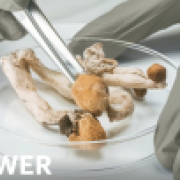CU Denver Center for Psychedelic Research
A transdisciplinary team of leading experts in psychology, medicine, psychoneuroimmunology, behavioral neuroendocrinology, and public policy who study the use of psychedelics holistically.
The CU Denver Center for Psychedelic Research (UCDCPR), launched in 2024, is dedicated to improving quality of life through research and education on the effects and therapeutic mechanisms of psychedelic interventions.
We are a comprehensive, transdisciplinary center focused on researching the basic science, therapeutic effects and mechanisms, and social, economic, and public health implications of psychedelic drugs and providing training to prepare the next generation of researchers, clinicians, and community leaders in the responsible and evidence-based use of psychedelic therapies.
In this initial period, the UCDCPR is focused on three areas: research, education, and infrastructure. The center will also conduct events to share with the community and to inform public policymakers.






